
Living Well
COVID-19: What Should You Eat To Boost Your Immunity?
May 27, 2020
We’re living in extraordinary times. With India on a 21-day lockdown to fight against COVID-19 coronavirus, we are all confined to our homes.
Not only are we working from home, dealing with household chores while self-isolating in the absence of house help, and managing bored kids, we are also struggling with limited availability of groceries and fresh produce. In times like these, most of us have one question – what can we eat to help boost immunity?
Truth be told, now is the time to make a few changes to your diet. Even if you are otherwise healthy, it’s important to make some key diet changes that help strengthen your body, give you some much needed energy and also keep unwanted infections at bay.
Why Are These Diet Changes Necessary?
The human body is designed to crave homeostasis – which means balance, stability and normalcy.
But considering these extraordinary times, nothing feels normal. The two big changes most of us are currently dealing with are:
1.The fear/stress/anxiety that many of us feel because of the coronavirus pandemic. Most of us are on multiple WhatsApp groups, each of them shelling out confusing and conflicting information (which btw, is rarely accurate or even correct). This information overload throws the human body into fight or flight mode — which not only increases stress and anxiety levels but also, hampers digestion. When the body is under stress, it downregulates digestion. This is because digesting food requires the maximum energy consumption. When the body anticipates stress that puts it into that fight or flight state, its only job is to protect you and cut out all unnecessary physiological functions —- of which digestion is among the first.
2. Secondly, as most of us stay at home in self-isolation, our energy expenditure has gone down. Simply meaning – we are not burning as much calories as we used to before this pandemic. Gyms are closed, and most of us are avoiding morning walks and runs. Even simple tasks like walking to your car, taking a flight of stairs to your office, or going to the bus stop to pick up kids have disappeared from our lives. In such a case, there’s no need for us to eat as many calories as we did earlier, as we simply will not be able to burn them.
Hence, the diet that worked for you for years may not be the best right now. In this changed environment, there are some simple yet effective diet changes that can help your body achieve homeostasis and also boost your immunity. Also, this will help you avoid diet mistakes that could unknowingly make you gain weight. The idea is to help you eat better with whatever groceries you have available at home, so that your diet nourishes and protects you in these uncertain times.
12 Simple Diet Tips To Follow At Home
1. Eat Nutrient Dense Foods
What are nutrient dense foods? These are foods that offer you maximum amount of nutrition with every mouthful. Think healthy carbs, protein rich foods and good fats. Essentially, this means you should focus on eating a balanced diet instead of resorting to instant noodles, biscuits and packaged foods.
2. Vegetables are Complex Carbohydrates – Have More of Them
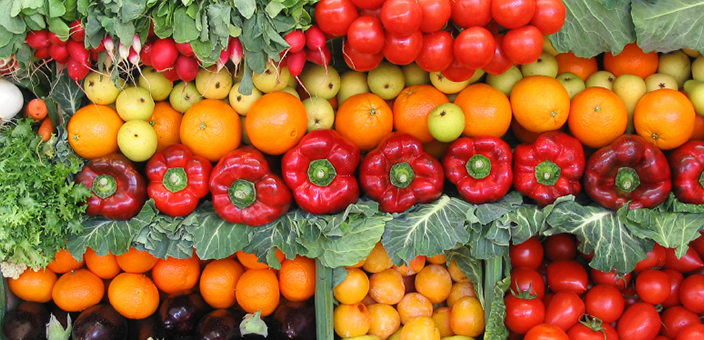
They don’t just offer you energy to better handle the stressors of your everyday life, but are also chock full of essential vitamins and minerals. Opt for whatever fresh produce you can find, the more local and seasonal – the better. Don’t stress that you can’t find iceberg lettuce and kale at local vendors; instead focus on eating readily available vegetables like spinach, carrots, bottle gourd, okra, brinjal and cabbage. If possible, eat at least 2 veggies in each meal. The more green or colourful they are – the better.
3. Don’t Forget to Eat Healthy Proteins Each Day
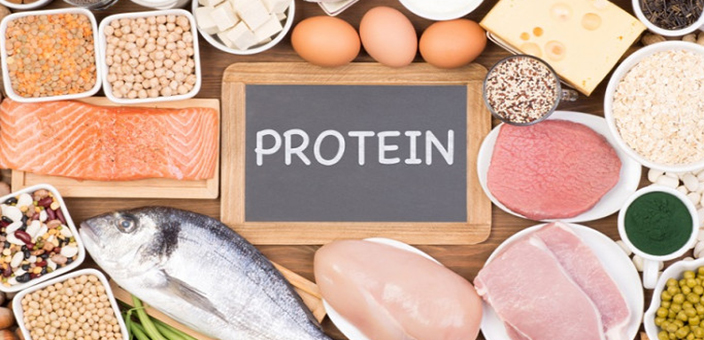
Proteins help your body build antibodies to fight infections and also build haemoglobin. Also, they are calorie dense foods that help you feel full for longer, keeping cravings at bay. Add a good source of protein to every meal. Dals, chana, rajma, eggs, chicken and fish are all good options.
Pls Note: The coronavirus is very different from bird flu. As of date, there is no evidence that chicken or other poultry items transmit the virus. So chicken is safe. Additionally, it’s easier to store chicken and eggs in the fridge/freezer to cook a balanced meal on days fresh produce isn’t easily available.
4. Add Good Fats to Every Meal

Yes, I know you are sitting at home all day and probably want to eat a low-fat diet. But Fats DON’T make you fat!!! Instead, fats are a dense source of energy. In fact, they have 2.25 times more energy as compared to carbs and protein. In these stressful times when we are constantly worrying and also handling all household chores along with work pressure, we can do with a little extra energy! A small amount of good fats can help keep you satisfied for longer.
- Add ghee to rice, roti and paranthas.
- Put butter on your toast.
- Snack on a handful of nuts – almonds, cashews and walnuts are all good options.
- Cook with coconut oil, or grate some fresh coconut on your sabji.
5. Limit Wheat & Rice
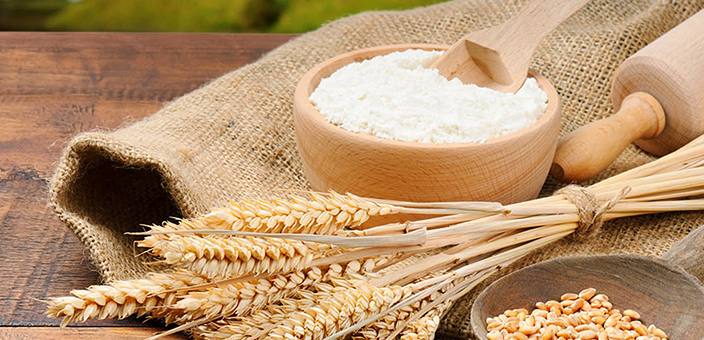
While wheat and rice are the most widely available and consumed grains in India, remember that these are simple carbs. Simple carbohydrates get digested very quickly and lead to a rapid post-meal sugar drop. If you are working from home and need to stay at your computers post a meal, you are likely to feel more sleepy and tired after a big meal containing rice and roti. So what can you do?
- Cut back on the quantity you eat. Reduce your portion size by one roti less or ½ bowl of rice at lunch. This doesn’t mean that you should starve yourself. So instead, increase your quality of dal, sabji or dahi to make up.
- An even better idea is to swap your afternoon rice meal for more complex grains, if and when possible. Opt for millets, ragi or nachni, jowar, amaranth or even quinoa. If you live in colder climate, bajra is another good option, but avoid bajra if you live in warmer climate as this grain is very warming to the body.
6. Try and keep dinner as light as possible
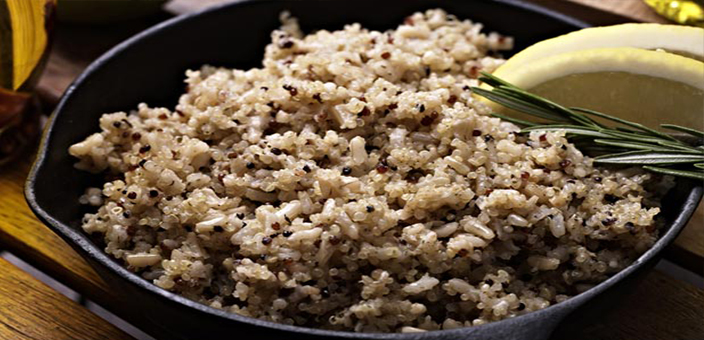
Ayurveda says that our digestive fire is highest at noon, but wanes or drops as the evening progresses. When you stay at home all day with limited movement, this digestion process is likely to be even lower. When you just aren’t burning enough calories, there is no need to eat a heavy dinner. Our recommendation: Have just a soup n subzi for dinner, or a fresh salad when possible. Avoid grain if you can.
7. Tap into the power of spices

This is to not
just add more flavour to your food, but also boost your immunity. Every Indian
home is stocked with spices, herbs and masalas that are great for health.
Turmeric, garlic, ginger, cinnamon, clove, dhaniya seeds and ajwain (carom
seed)
are just a few great examples. In times
of the coronavirus scare, these spices play a star role in your diet.
Spices are high in antioxidants which help fight infections. Many boost digestive health and offer anti-inflammatory benefits as well. Haldi (or turmeric) for example helps release mucus. How can we have them?
- Sip on a homemade herbal tea: hot or warm. Personally, I don’t have regular tea with milk and sugar anymore. Instead, I start my day with a cup of herb and spice tea. To make – boil plenty of ginger, pudina or mint, and lemongrass. Strain and drink this. This super energising, fantastic pick me up ensures you put all the good stuff into your body first thing in the morning.
- Use spices to flavour all dry subjis, curries and gravies. The added flavour makes your meal super satiating.
- Sip on cinnamon flavoured water to keep cravings at bay.
- Try a few recipes for Indian/desi soups with spices: Just fry cloves jaiphal, cinnamon, ginger & garlic in a pan. Add tomatoes and whatever veggies you have in your kitchen. Boil until cooked. Add salt to taste. You can either serve this as a simple clear soup, or blend the soup for a thicker consistency.
8. Cook One Pot Meals
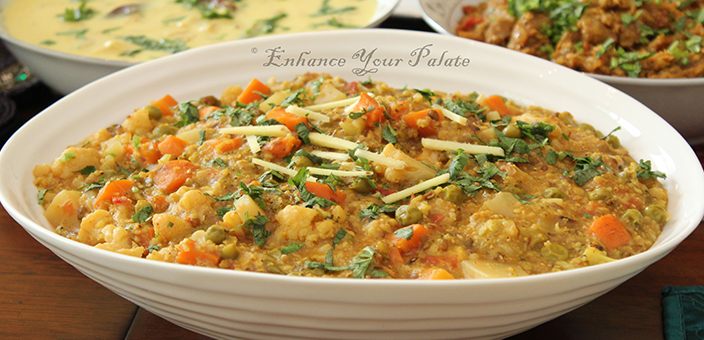
In these times when we have limited groceries and time (hello, mothers trying to feed a full house while also working from home!), the smartest thing to do is to make One Pot Meals. One Pot Meals are both nutritious and convenient. You can add a variety of healthy nutrients to a single pot meal that cooks fast, and you have fewer utensils to wash later!
Our recommendations:
- Make a Khichdi with veggies by rotating the dals: tuvar, chana, moong.
- Try a one pot Chicken and Rice meal – an easier alternative to chicken biryani.
- Make some spicy Bisibele bath – the sambar rice & vegetable combo from Karnataka.
- A simple yet fresh Millet pulao with mint leaves is an amazing healthy option.
- Get in proteins with a Kala Chana pulao.
Honestly, I always feel Indian should make their cooking simpler by opting for one pot meals. And there is no dearth of options! Get creative!
9. Beware of the 5pm Hunger – a Big Villain
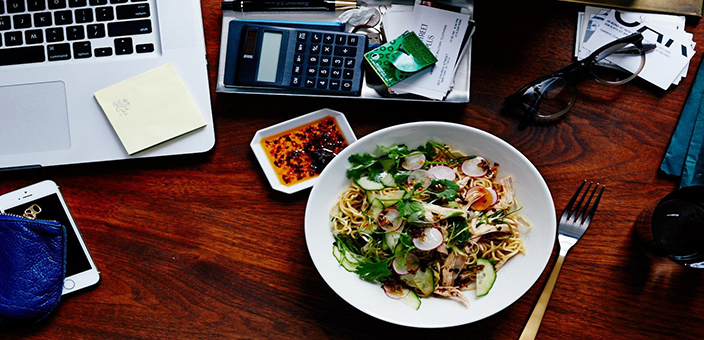
It’s worse when everyone is at home. And honestly, the task becomes more challenging with kids and adults – all at home. Avoid succumbing to the comforting delights of pakoras or onion bhajiyas. This doesn’t mean you can’t have your favourite fried foods at all – but make sure these are only occasional treats and don’t become an everyday affair. Since our focus is to build immunity, pick on several healthy options instead.
Some easy tips:
- Avoid biscuits, however easy they seem. They are just baked maida, butter and sugar, and don’t really offer any real nutrition. Instead, have few almonds with evening chai.
- If you have leftover chapati from lunch – make khakras.
- Take Peanuts/boiled chana & toss with onions & tomatoes for a quick snack.
- For kids, Fruit & dahi or Cheese cubes & nuts can be an exciting snack.
- Roasted Makhana or Foxnuts make for a quick snack when tossed with fresh herbs or spices.
10. Avoid Eating or Drinking anything Cold

This is one BIG caution. Do not lower your immunity by damaging your throat or stressing the respiratory system. Avoid chilled water and keep away from ice-creams and sodas. Opt for room temperature water at all times.
11. Keep Your Weight In Check

And that brings us to an important point – How to avoid putting on weight when housebound? Here are some tricks to keep moving and avoid mindless snacking:
- Take 100 steps after each meal. Do this in the house. Walk in the living room, around the dining table or go from one room to room. If you are quarantined in a room, just walk around the bed. You need to move what you’ve just eaten to aid digestion.
- Avoid stress eating. It’s the easiest way to pile on unwanted calories. When you feel like snacking, ask yourself a simple question – am I really hungry? Or am I just bored?
- If you’re working from home (where you have easy access to the kitchen and all the snacks in it!) adopt a simple technique to cut back snacking. Keep a bottle of flavoured water next to you and take frequent sips. Believe it or not, many a times the human brain mistakes thirst for hunger. Infusing lemon, mint or even a slice of orange in water tricks your brain into feeling satiated, and keeps you from reaching out for that packet of namkeen.
12. Manage Sugar Cravings

Many of us experience sugar cravings. And it’s much easier to succumb to it when you’re at home, and the kitchen is within your reach. At a time when our focus should be on building immunity, sugar is a villain. Sugar raises blood sugar levels and also triggers an inflammatory response in the body.
So, what can you do to keep sugar cravings at bay?
- Sip on cinnamon flavoured water through the day. Infuse a stick of cinnamon into a bottle of water. It has a sweet taste without the downside of sugar.
- Sip on a cup of green tea after a meal.
- Chew really well on teaspoon of saunf or fennel seeds after a meal. This works brilliantly for me.
- And if you’re still going crazy with the craving: have 1 small piece of dark chocolate or chikki. JUST one. Skip the mithai.
At Sepalika, we believe Food is Medicine. And our hope is that in such vulnerable times, this is what each of us can do – USE food to protect ourselves.
I will sign off with one advice I give each and every client we work with: 5 deep belly breaths before each meal. In…& Out…In…& Out…This Gets the body into parasympathetic state where foods digest well and is absorbed better.
Stay Calm. Stay Safe. Stay Healthy.



